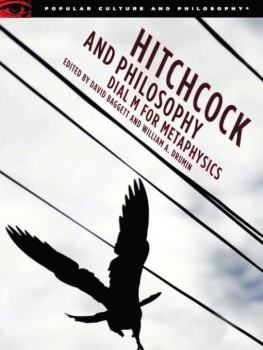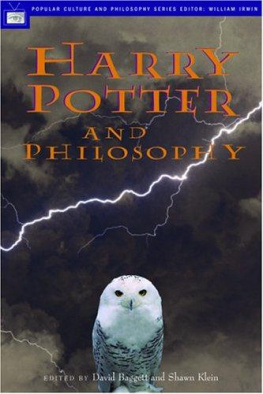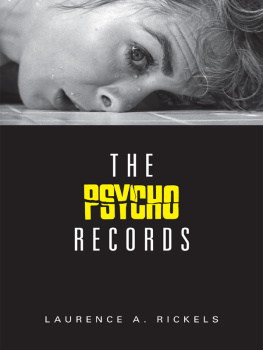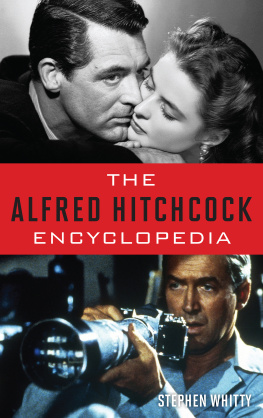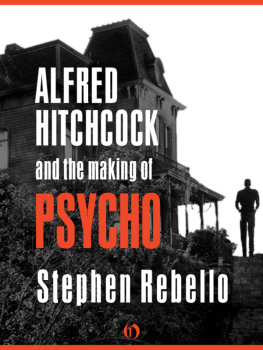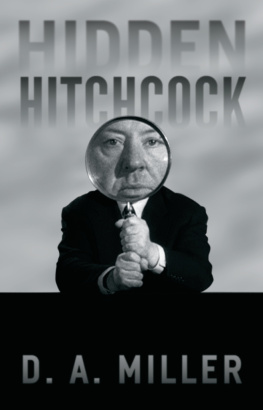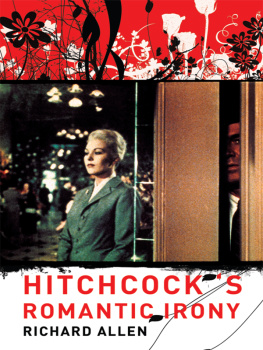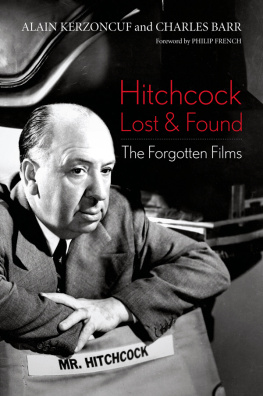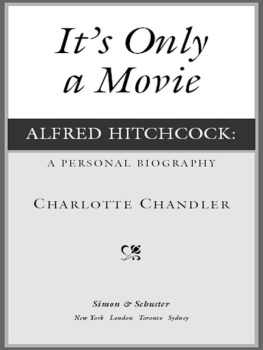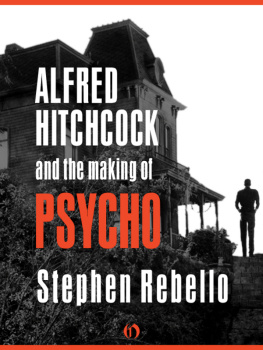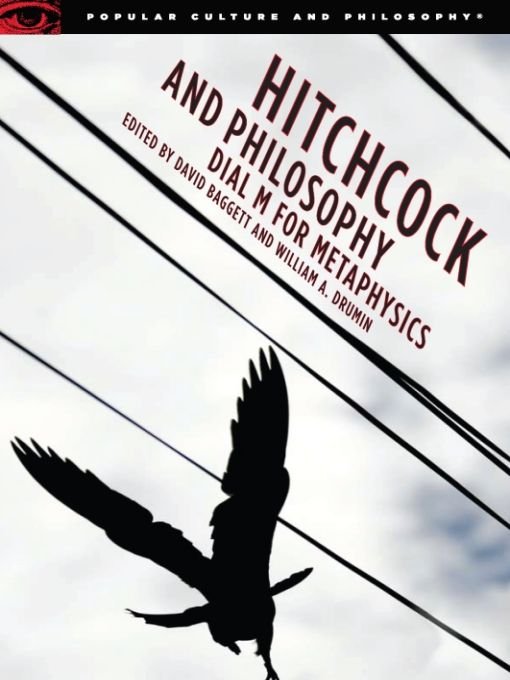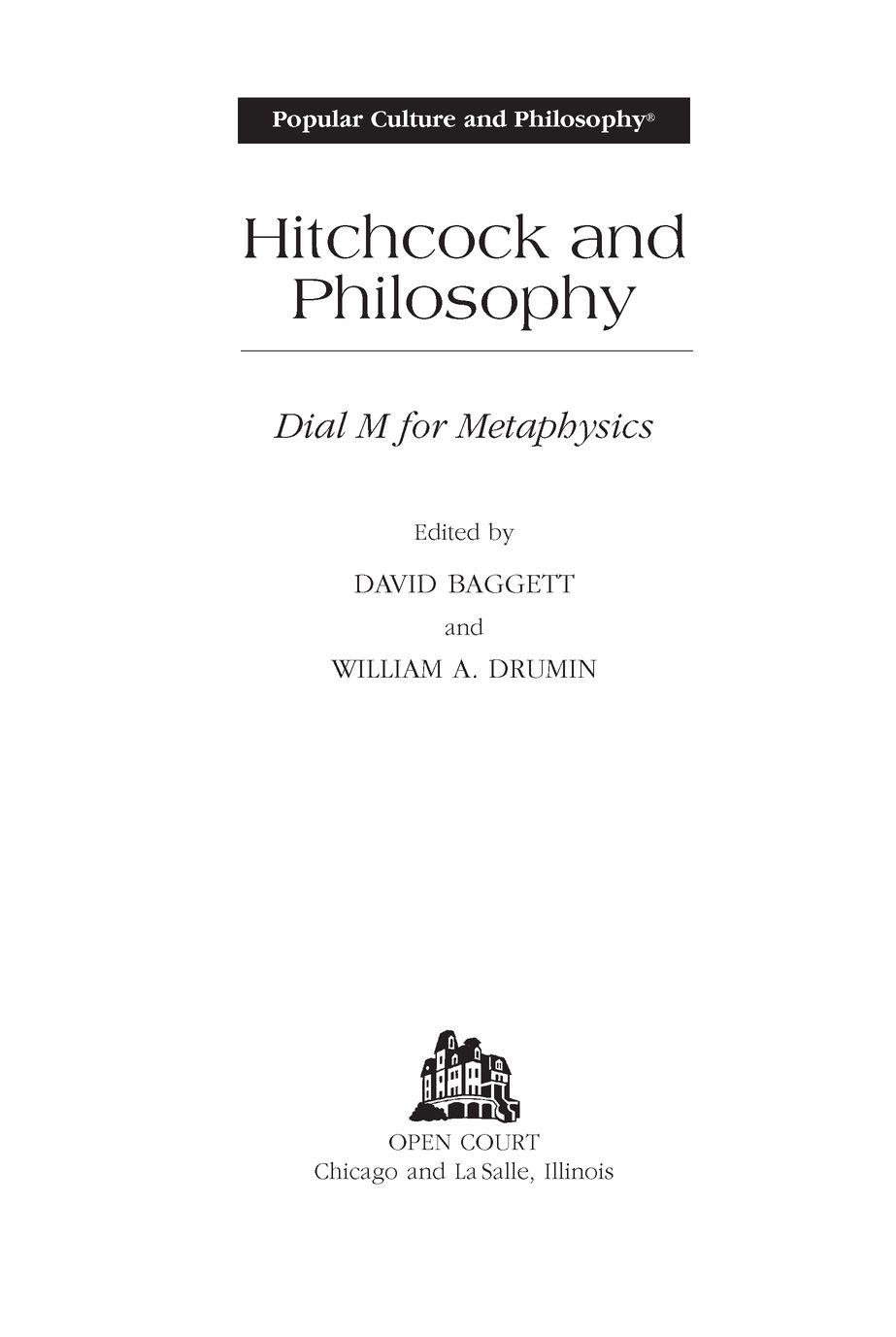Table of Contents
Popular Culture and Philosophy
Series Editor: George A. Reisch
(Series Editor for this volume was William Irwin)
VOLUME 1
Seinfeld and Philosophy: A Book about Everything and Nothing (2000)
Edited by William Irwin
VOLUME 2
The Simpsons and Philosophy: The Doh! of Homer (2001) Edited by William Irwin, Mark T. Conard, and Aeon J. Skoble
VOLUME 3
The Matrix and Philosophy: Welcome to the Desert of the Real (2002) Edited by William Irwin
VOLUME 4
Buffy the Vampire Slayer and Philosophy: Fear and Trembling in Sunnydale (2003) Edited by James B. South
VOLUME 5
The Lord of the Rings and Philosophy: One Book to Rule Them All (2003) Edited by Gregory Bassham and Eric Bronson
VOLUME 6
Baseball and Philosophy: Thinking Outside the Batters Box (2004) Edited by Eric Bronson
VOLUME 7
The Sopranos and Philosophy: I Kill Therefore I Am (2004) Edited by Richard Greene and Peter Vernezze
VOLUME 8
Woody Allen and Philosophy: You Mean My Whole Fallacy Is Wrong? (2004) Edited by Mark T. Conard and Aeon J. Skoble
VOLUME 9
Harry Potter and Philosophy: If Aristotle Ran Hogwarts (2004) Edited by David Baggett and Shawn E. Klein
VOLUME 10
Mel Gibsons Passion and Philosophy: The Cross, the Questions, the Controversy (2004) Edited by Jorge J.E. Gracia
VOLUME 11
More Matrix and Philosophy: Revolutions and Reloaded Decoded (2005) Edited by William Irwin
VOLUME 12
Star Wars and Philosophy: More Powerful than You Can Possibly Imagine (2005) Edited by Jason T. Eberl and Kevin S. Decker
VOLUME 13
Superheroes and Philosophy: Truth, Justice, and the Socratic Way (2005) Edited by Tom Morris and Matt Morris
VOLUME 14
The Atkins Diet and Philosophy: Chewing the Fat with Kant and Nietzsche (2005) Edited by Lisa Heldke, Kerri Mommer, and Cynthia Pineo
VOLUME 15
The Chronicles of Narnia and Philosophy: The Lion, the Witch, and the Worldview (2005) Edited by Gregory Bassham and Jerry L. Walls
VOLUME 16
Hip Hop and Philosophy: Rhyme 2 Reason (2005) Edited by Derrick Darby and Tommie Shelby
VOLUME 17
Bob Dylan and Philosophy: Its Alright Ma (Im Only Thinking) (2006) Edited by Peter Vernezze and Carl J. Porter
VOLUME 18
Harley-Davidson and Philosophy:
Full-Throttle Aristotle (2006) Edited by Bernard E. Rollin, Carolyn M. Gray, Kerri Mommer, and Cynthia Pineo
VOLUME 19
Monty Python and Philosophy: Nudge Nudge, Think Think! (2006) Edited by Gary L. Hardcastle and George A Reisch
VOLUME 20
Poker and Philosophy: Pocket Rockets and Philosopher Kings (2006) Edited by Eric Bronson
VOLUME 21
U2 and Philosophy: How to Decipher an Atomic Band (2006) Edited by Mark A. Wrathall
VOLUME 22
The Undead and Philosophy: Chicken Soup for the Soulless (2006) Edited by Richard Greene and K. Silem Mohammad
VOLUME 23
James Bond and Philosophy: Questions Are Forever (2006) Edited by James B. South and Jacob M. Held
VOLUME 24
Bullshit and Philosophy: Guaranteed to Get Perfect Results Every Time (2006) Edited by Gary L. Hardcastle and George A. Reisch
VOLUME 25
The Beatles and Philosophy: Nothing You Can Think that Cant Be Thunk (2006) Edited by Michael Baur and Steven Baur
VOLUME 26
South Park and Philosophy: Bigger, Longer, and More Penetrating (2007) Edited by Richard Hanley
VOLUME 27
Hitchcock and Philosophy: Dial M for Metaphysics (2007) Edited by David Baggett and William A. Drumin
IN PREPARATION:
The Grateful Dead and Philosophy (2007) Edited by Steven Gimbel
Tarantino and Philosophy (2007) Edited by Richard Greene and K. Silem Mohammad
Pink Floyd and Philosophy (2007) Edited by George A. Reisch
Bruce Springsteen and Philosophy (2008) Edited by Randall E. Auxier and Doug Anderson
To Donald Spoto
Previews and Opening Credits
As we look at popular culture through the lens of philosophy, a familiar, portly figure ambles into viewthe master of suspense, Alfred Hitchcock.
Hitchcock was a profound artist as well as a popular entertainer. His numerous classic movies engage the viewer through the elaboration of ideas, concepts, and humanist issues, deployed via the medium of compelling cinematic language, of images and sounds.
Hitchcock has long been recognized as a cinematic auteur whose films embody expressions of a personal vision of the world. The chapters presented in this volume address a range of issues, some raised by consideration of a single film (including one segment done for Hitchcocks TV series), some by a comparison of two or more movies, and some by an examination of a significant facet of Hitchcocks entire work. We aim to critically examine Hitchcocks approach and to uncover some of its philosophical implications.
Many viewers have observed that Alfred Hitchcock focuses on ideas in the construction of his films. The French director-critics Claude Chabrol and Eric Roemer, in their book, Hitchcock, claimed that each of his classic films is based on a sort of formal postulate. Hitchcock organized the dramatic elements of the films around the expression and deployment of conceptual elements. Philosophical issues are thus proposed by the thematic motifs in Hitchcocks major films. Among conspicuous elements of Hitchcocks personal vision, we may discern the following:
1. A strong anti-utopian outlook that finds the human species, and indeed the universe itself, to be in a fallen condition with a disillusioning propensity for unleashing chaos and destruction.
2. A decidedly existentialist perspective that affirms the challenge of individual self-definition through the risk of personal choice and commitment.
3. A correlative construal of spectatorship as flight from commitment and authenticity, or an attempt to deny the primary reality of the subjective.
4. A remarkable anticipation of later viewpoints regarding the social roles of women.
This book explores the philosophical implications of these perspectives and other aspects of Hitchcocks artistic vision. The philosophical issues have their inherent interest and challenge and also deepen our appreciation of the movies.
Like the films it investigates, Hitchcock and Philosophy was made possible by a huge collaborative effort. Many thanks to all of our excellent authors. Their patience was Herculean and their philosophical talents and sincere regard for Hitchcock are obvious. The deepest thanks to our own masterful director and friend, the auteur Bill (T-Bone) Irwin, whose vision for this book and the popular series of which its a part guided all our efforts and whose influence can be felt on every page.
We appreciate all the good folks at Open Court for bringing the book to its final stage of completion, and special thanks go to Jaime McAndrew for offering some very useful editorial suggestions.


